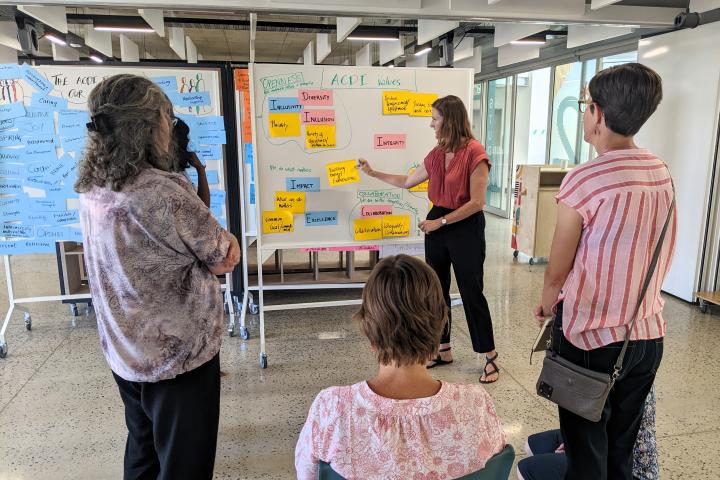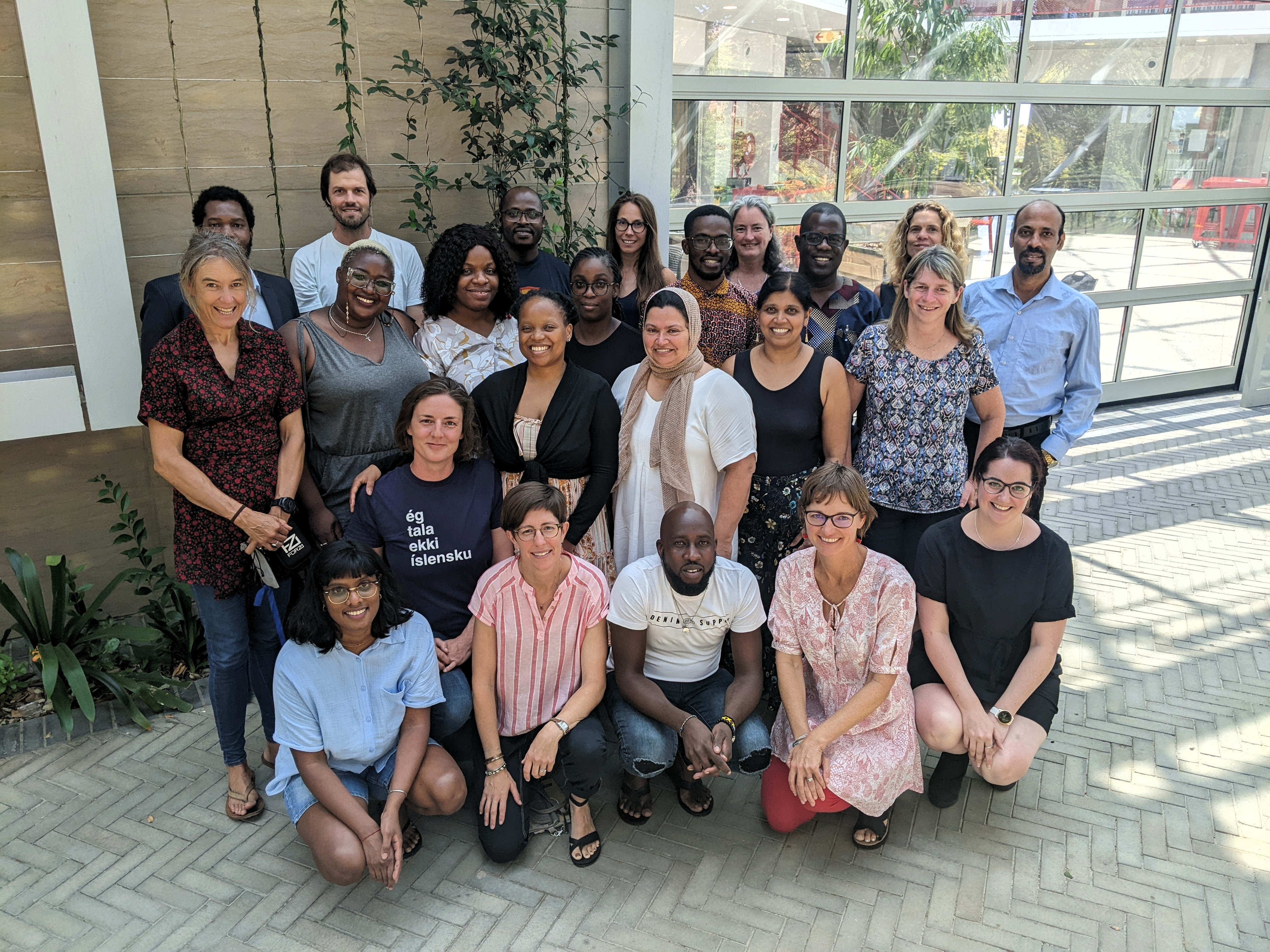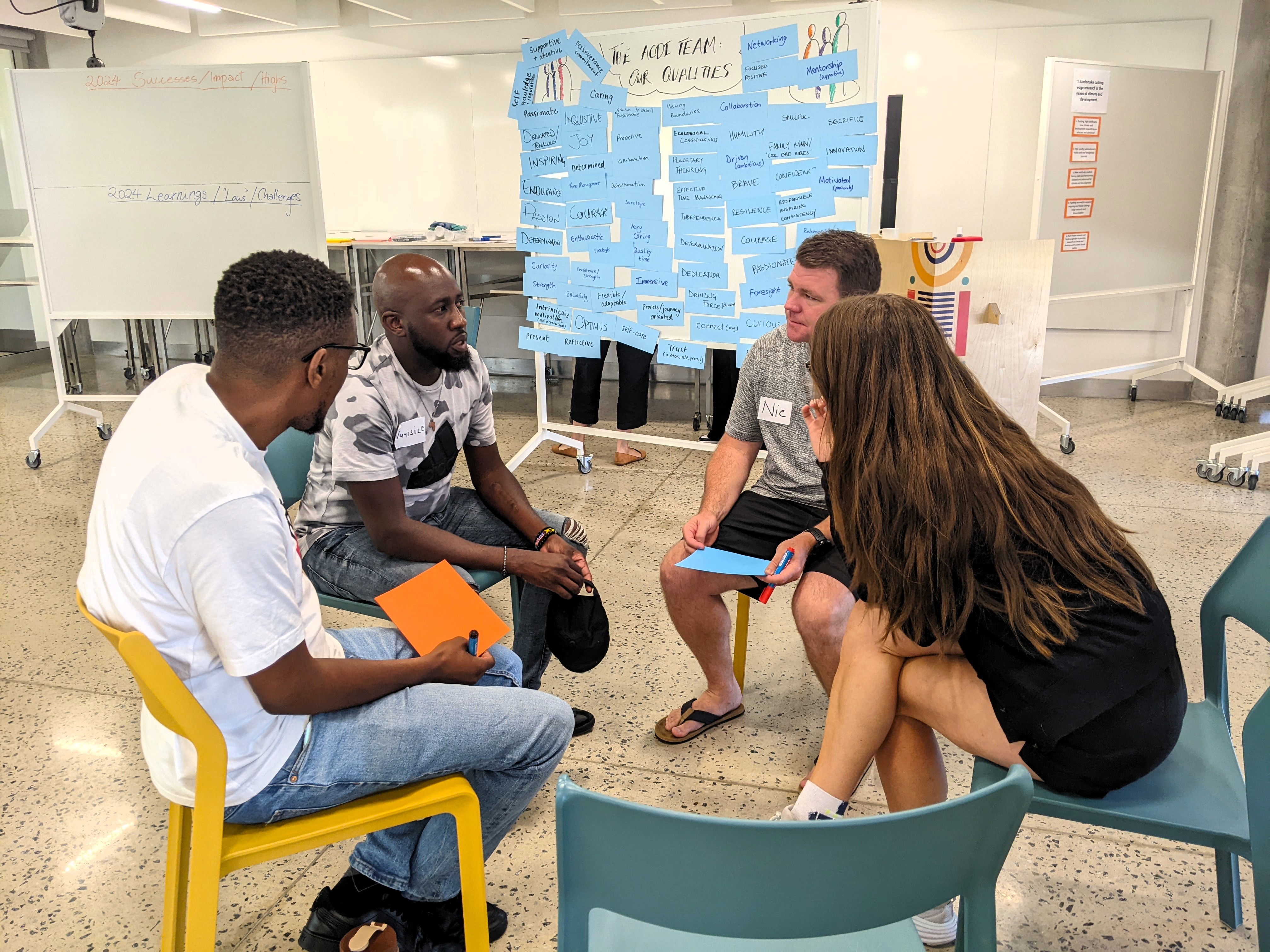ACDI launches new strategy for impact

At the African Climate and Development Initiative (ACDI), we believe that all people should be able to thrive within healthy ecosystems. As an institute at the University of Cape Town, we have spent more than a decade doing research, teaching and fostering collaboration to support climate-resilient, low-carbon development in Africa and beyond. Now, in response to an increasingly urgent climate landscape, we have launched a new institutional strategy that affirms our values, focuses our research, and strengthens our role in shaping African-led climate and development futures.
Our updated strategy aligns with UCT’s Vision 2030 and reflects our core mission: to build evidence, capacity and agency across Africa to shape discourses, set agendas, and catalyse action for equitable, climate-resilient development.
“We have had a few strategy sessions over the past year, but early in 2025 we got facilitators from Contract SA to help support a more focused 2-day process. This really enabled ACDI staff to listen to each other and build connections amongst the team. We also used this time to decide on focused activities for each objective to guide our work in the coming year”, explains ACDI director Gina Ziervogel.
Grounded values for collaborative, courageous climate action
The way we work is as important as what we do. As part of developing our new strategy, we carefully considered what our core values are that guide our work and shape our institutional culture. This led to new values of:
- Openness – We embrace diverse perspectives, people and ideas.
- Courage – We brave uncertainty and challenge the status quo.
- Critical thinking – We cultivate research excellence to deepen understanding and expand possibility.
- Collaboration – Together, we do more. We believe in the power of partnerships to produce meaningful change.
“Working with our diversity of colleagues to develop this new strategy was a great opportunity to practice our shared values of openness and collaboration – it felt like we were walking our talk,” says ACDI senior researcher Anna Taylor.
These values underpin our work and support us in contributing to just and inclusive responses to the climate crisis, responses that are shaped by Africa’s priorities and experiences.

Responding to Africa’s climate action needs
This decade is a decisive one for climate action. Global emissions must decline rapidly to avoid exceeding 2°C of warming. At the same time, the success of adaptation efforts will determine whether we are able to secure a liveable future. Africa is at the centre of this global challenge, experiencing some of the most severe climate impacts while receiving a disproportionately small share of climate research funding.
We recognise the deep structural inequalities that continue to shape Africa’s climate and development landscape, including persistent exclusion from influential decision-making spaces. But we also see immense opportunity. Our continent has a wealth of knowledge, innovation, and resilience to offer, and a chance to reimagine sustainable development pathways from the ground up.
To achieve impact, we are prioritising five strategic objectives that guide our work:
- Undertake cutting-edge research at the nexus of climate and development.
- Develop excellent future leaders for climate action in research, policy and practice
- Catalyse and sustain diverse partnerships for transformative climate research and action across Africa
- Influence climate and development decision-making and practice across scales based on evidence and collaboration
- Shape climate and development discourses, agendas and thought leadership towards equitable societal change in response to climate change in Africa
Each of these objectives is supported by key results and associated outcomes to guide our progress.
Research themes: risk, governance, and climate resilient development
We pursue our strategy through three intersecting research themes:
- Climate risk diagnosis – We generate data and insights on climate hazards, impacts and vulnerabilities, looking at how physical, ecological and societal systems interact. Our work spans historical analysis, real-time monitoring and future projections.
- Climate governance – We critically examine and engage with governance processes across scales, from local to international. We analyse how climate decisions are made and help inform policy and institutional change through evidence and participation.
- Climate resilient development – We focus on co-creating solutions. This includes exploring adaptation and mitigation options that are context-specific, scalable and sustainable, while considering the limits of current approaches and the need for systemic transformation.
Advancing transdisciplinary research and synthesis
Transdisciplinary and interdisciplinary approaches are central to our work. We believe that confronting climate and development challenges requires knowledge co-production that integrates scientific, local and practitioner perspectives. We prioritise processes that enable collaborative problem-solving and aim to transform not only outcomes but the relationships and capacities of everyone involved.
“Co-creation always sparks different views, opinions and innovations. It was a great process of diverse minds valuing collaboration in ensuring shared objectives and values. The process brought a sense of oneness in diversity,” explains ACDI postdoctoral researcher Vuyisile Moyo.
With our new strategy, we reaffirm our commitment to building a fair and just society rooted in Africa, with global reach. We are proud of the work we’ve done and inspired by what lies ahead - supporting transformative climate and development action, from the classroom to the policy table, and from the local to the global.
